Upon getting invited to any type of wedding, one of the first questions we ask ourselves is, “What am I going to wear?” The answer to this question depends on several aspects, including the formality of the event, its schedule, its location, and more.
When thinking about what to wear to a Catholic wedding, you must keep in mind that Church ceremonies generally have a formal or semi-formal dress code. This piece of information can guide you as you construct your outfit for the wedding.
Below are 10 rules regarding what to wear to a Catholic wedding, including what you can and cannot wear. Factors to consider while choosing your outfit are also enumerated, followed by a quick crash course on several types of dress codes commonly seen in Catholic weddings. Outfit ideas are also presented. Lastly, some styling tips are given.
Rules for What to Wear to a Catholic Wedding
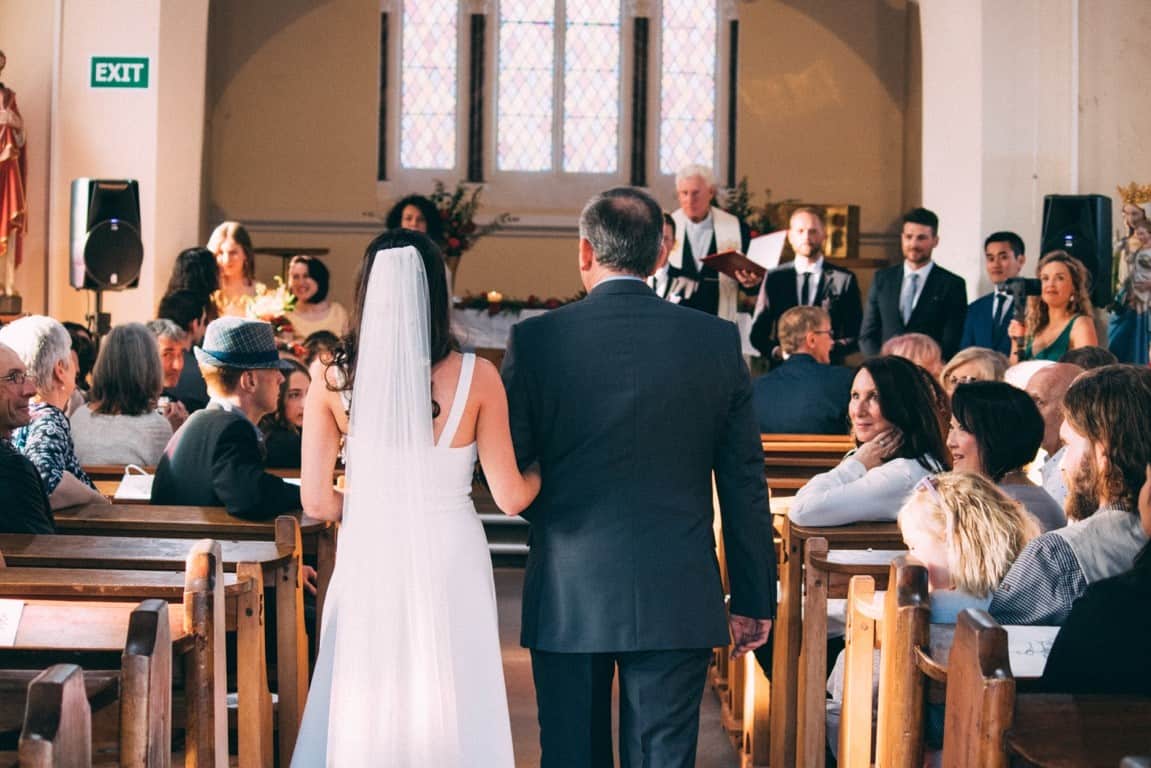
1. Dress Modestly
In Catholic weddings, it is generally discouraged for guests to wear outfits that reveal their cleavage, shoulders, and chest. If the dress you have chosen shows these parts of the body, you should consider working a coverup into your attire. Examples include blazers, jackets, and shawls.
2. Wear Clothes with Appropriate Length
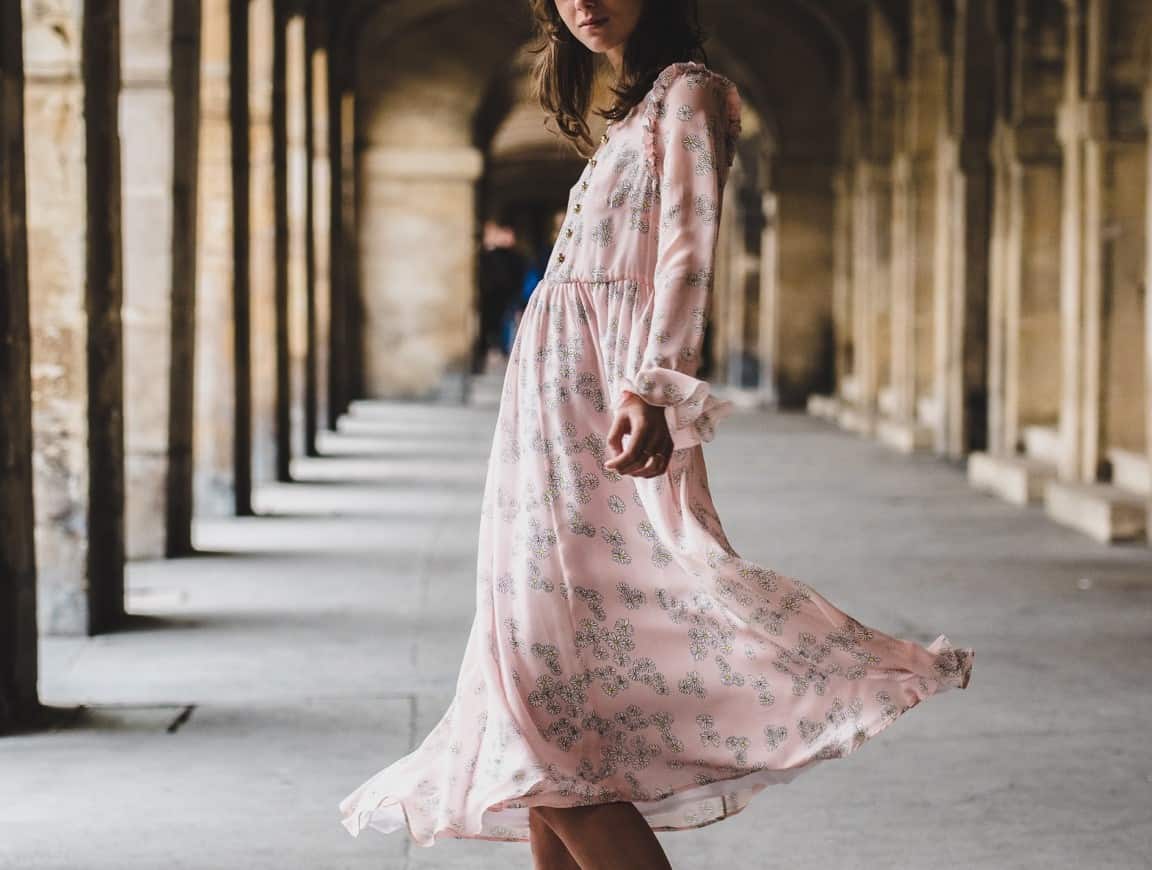
In the same vein as the rule above, the length of your clothes should not be too short. If you are wearing a dress or a skirt, it can be challenging to determine what is “too short.” A good rule of thumb is that it should reach close to or lower than your arm’s length when your arm is relaxed at your sides.
Another consideration related to the length of the dress is what it covers when you are seated. It is considered inappropriate to wear a dress or skirt that bares your thighs while you are sitting.
What Not to Wear to a Catholic Wedding
3. Predominantly White Outfits
In Western weddings, the color white is strongly associated with marriage. Particularly, it is a color reserved for the bride and her attire. With that said, you are highly discouraged from donning outfits whose dominant color is white.
However, you can use white as an accent color for smaller pieces. White, such as jewelry and shoes, are acceptable. Be mindful of the bridal party’s attire, though, and do not wear anything too similar to theirs.
4. Do Not Wear Heels That Are Too High
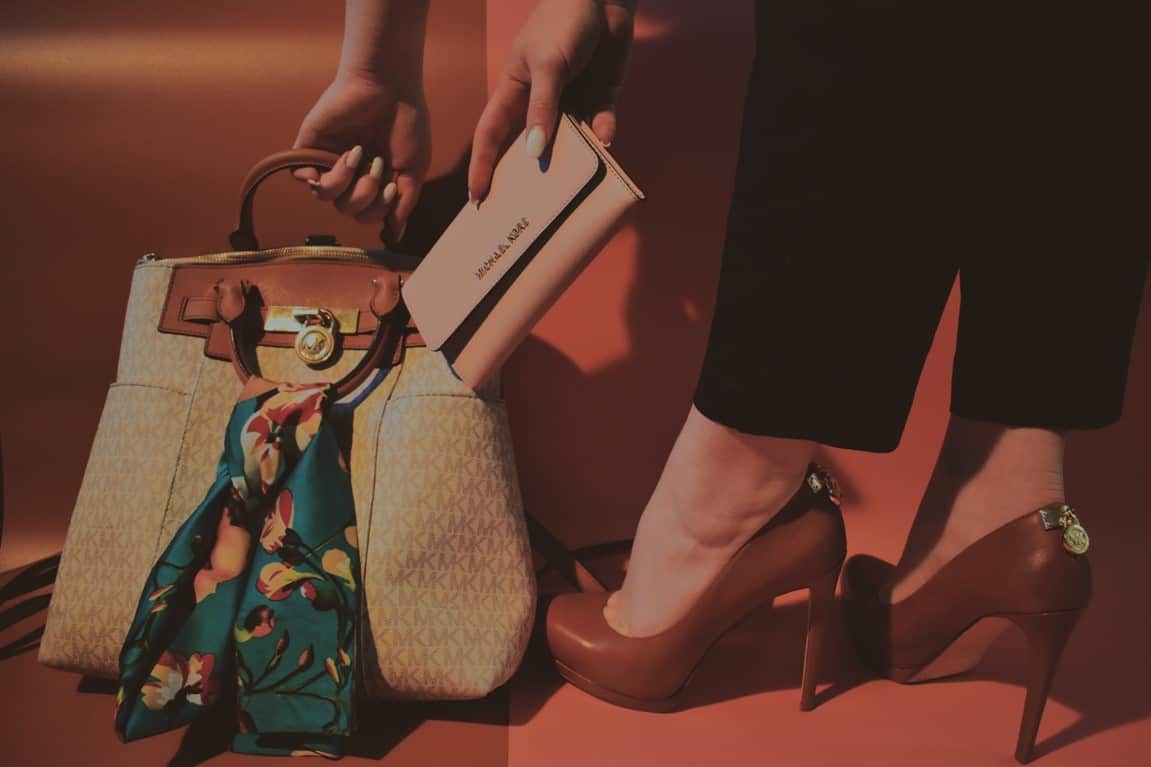
Shoes with tall heels are discouraged, as they are also seen to be immodest. For practical reasons, it is also best to shy away from high heels; not only will they become uncomfortable when worn too long, but they will also put you at risk of tripping.
5. Leggings and Yoga Pants

Leggings and yoga pants have become a staple in many people’s closets because of their comfort and practicality. Although originally intended for exercising, people wear leggings and yoga pants for casual situations as well.
With that being said, leggings and yoga pants do not meet the level of formality that a Catholic wedding — or any wedding in general — entails. You can wear them during the hiking portion of a hiking wedding, the night after the wedding, but never during the ceremony proper.
6. Clothes with Cutouts
As stated above, you are discouraged from showing your cleavage, shoulders, and midriff in the interest of modesty. Corollary to this, clothes with cutouts that expose those parts of your body are heavily discouraged.
7. Clothes with Inappropriate or Loud Graphic Design
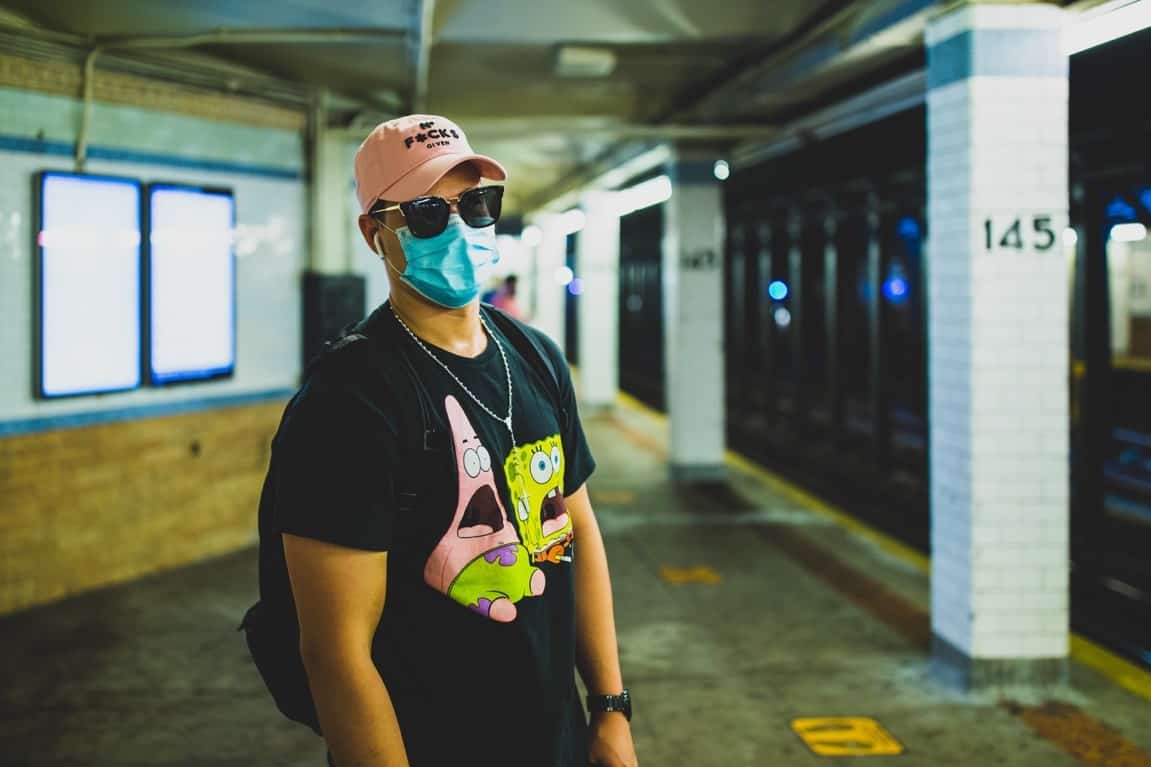
Again, consider the level of formality. Graphic shirts and jackets are perfect for casual situations, such as hanging out with friends or lounging at home; however, they are too casual for a formal event like Catholic weddings.
You also run the risk of taking attention away from the couple, especially if the design is loud or provocative. Risqué motifs and political statements are strongly discouraged.
8. Sneakers or Trainers
On semi-formal occasions, people often assume that wearing sneakers or trainers is a perfect choice. For instance, men in suits sometimes wear sneakers as a substitute for dress shoes. While that may be true for other events, it is discouraged for Catholic weddings. These types of shoes lean more toward casual and informal.
9. Sportswear and Activewear

Generally, any article of clothing for sports or physical activity is not appropriate for a Catholic wedding. They do not meet the level of formality of such weddings, as they are casual and informal; in the first place, you are not attending a wedding to work out. It can also communicate that you did not put effort into your appearance.
10. Hats Inside the Church
In Western cultures, wearing a hat in closed quarters may be interpreted as a lack of respect and decorum. Thus, you are discouraged from wearing a hat inside the church. Moreover, it will negate the effort you will put into styling your hair.
However, if the wedding is taking place outdoors, or you are already at the reception, hats are an appropriate choice for an accessory.
Factors to Consider for Choosing What to Wear
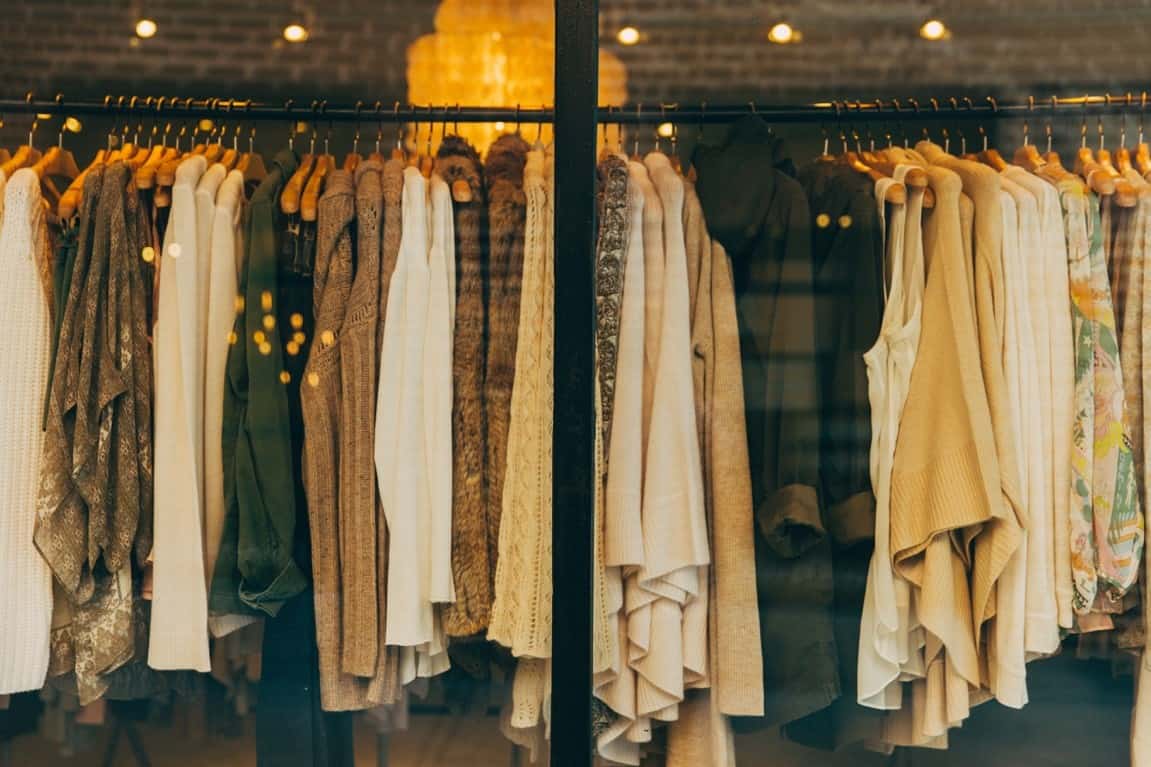
The Progressiveness of the Specific Church
It is worth mentioning that guidelines on “modesty” vary across churches. While more progressive churches might not see a problem with exposing the abovementioned body parts, other churches might be more conservative. To be sure, ask the couple or officials from the church regarding this matter.
The Dress Code Prescribed by the Couple
Every event has a dress code, which is directly related to the venue and the level of formality. As mentioned above, Catholic weddings held in a church are typically formal or semi-formal gatherings.
However, look out for the dress code specifically prescribed by the couple. It might provide more details regarding what you are and are not allowed to wear. This is typically indicated on the wedding invitation, their social media, or wedding website.
When in doubt, ask the couple themselves. They can explain the dress code in more detail, inform you about their boundaries and expectations, and even assess your outfit ideas. By doing this, you can extinguish any doubts and insecurities about what to wear to a Catholic wedding.
Schedule of the Wedding
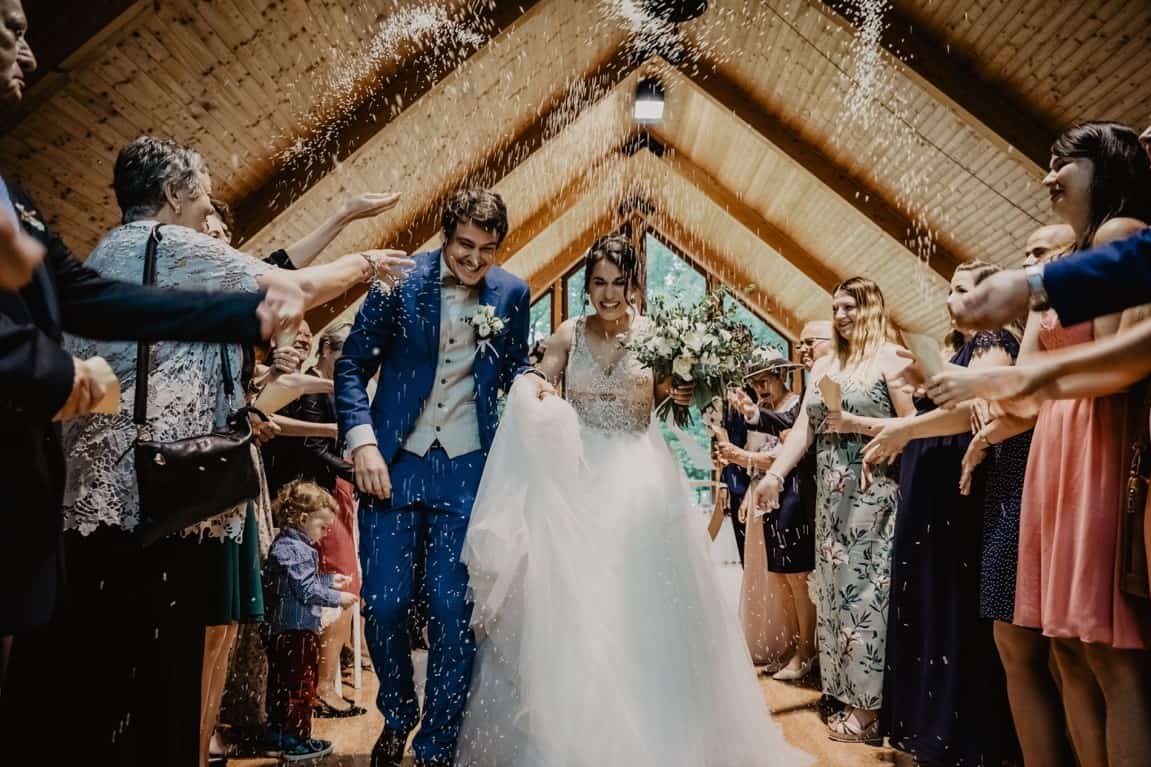
The season and weather during the wedding will be an important factor to consider. In summer weddings, you may want to wear cooler fabrics and, at the reception, add a stylish hat to your outfit. Oppositely, winter weddings may necessitate thicker and more layers. More than elegance, comfort should also be a priority when deciding what to wear to a Catholic wedding.
Color Scheme of the Wedding
You must plan your outfit around the wedding color scheme. The considerations enumerated above will also inform this decision — for instance, a wedding held during springtime might have a spring-themed color scheme.
Ceremony and Reception Location
Catholic weddings can be held during a Mass or without a Mass; regardless, the ceremony itself is usually held indoors. Meanwhile, receptions can be indoor or outdoor. The locations of both the ceremony and the reception are important considerations for your outfit. For instance, you may want to avoid certain footwear or certain colors if the reception is held outdoor.
Your Role in the Wedding
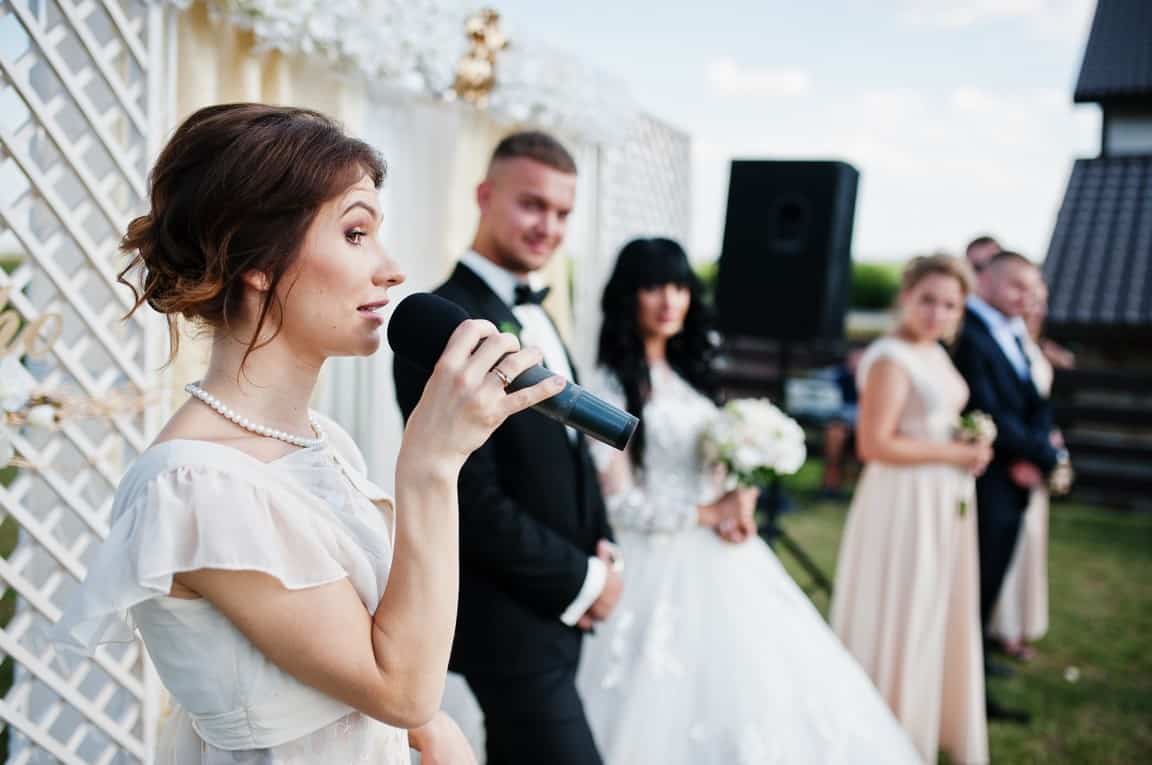
If you will be reading a verse from the Bible during the Liturgy of the Word, or making a speech at the reception afterward, you may want to pay additional attention to what you are wearing. This is because all eyes will be on you at some point during the day, and you would want to look your best once that happens.
Your Comfort and Confidence
It is not often that we get invited to a wedding. As such, we tend to see it as an opportunity to dress up and look our best. However, do not compromise your comfort and confidence for elegance and stylishness. There are ways you can stay somewhere near your comfort zone — and the dress code — but remain highly presentable.
Quick Crash Course on the Types of Dress Codes
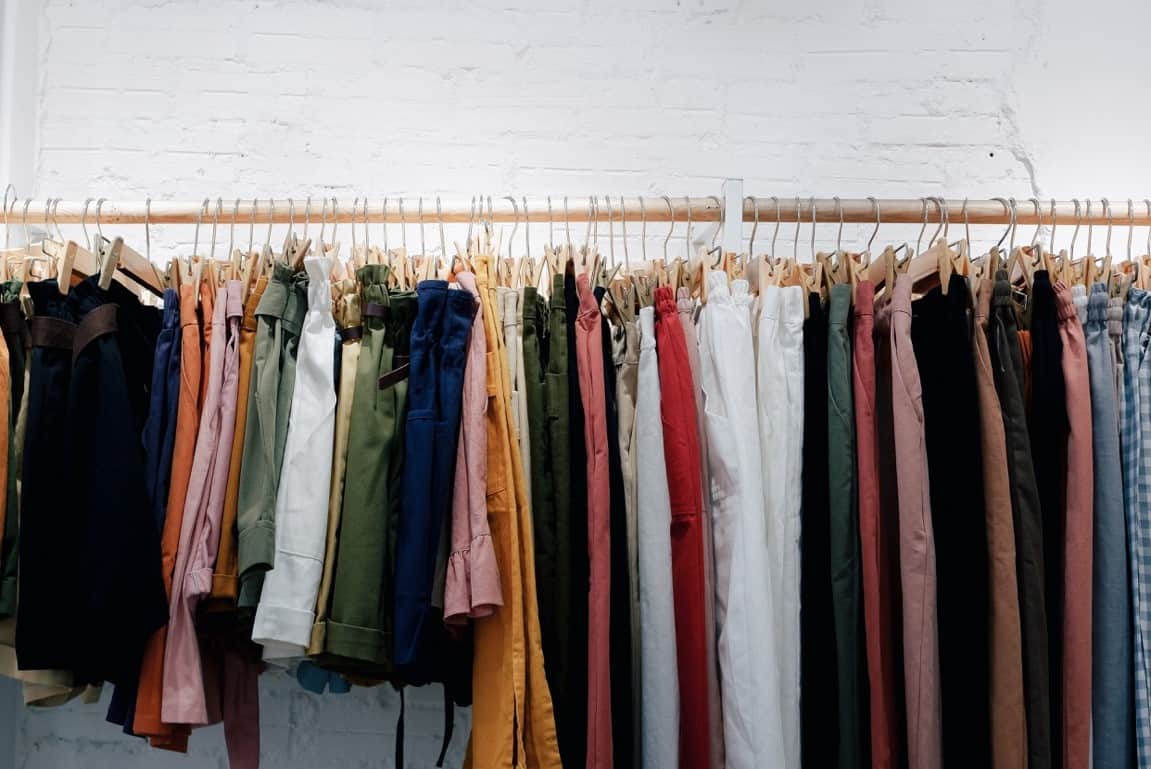
As mentioned above, Catholic weddings are typically formal or semi-formal events. However, there are other types of dress codes that couples may prescribe for their wedding. It can get confusing quickly, so here is a crash course on the common types of dress codes for Catholic weddings.
White-Tie Dress Code
A white-tie dress code is as formal as it gets. On one hand, women must wear floor-length evening gowns and embellish their attire with heels, accessories, and a clutch. On the other hand, men’s outfits consist of a tuxedo with tailcoats, a white formal shirt, vest, bow tie, gloves, and formal shoes. This dress code has been used less frequently in modern times, and it is often reserved for the upper class.
Black-Tie Dress Code
A notch less formal than white-tie events, the black-tie dress code is a little more relaxed. Women should still wear floor-length gowns that hide their ankles, but in less formal events, they can also opt for an elegant cocktail dress. Likewise, pantsuits are also allowed.
The attire for men is similar to that of white-tie events. However, they do not have to wear a pair of gloves anymore. They are also allowed to wear a white dinner jacket with black trousers.
Formal Dress Code

Also called “black-tie optional,” the formal dress code removes the necessity for a tuxedo. Though men can still choose to wear tuxedos, a formal dark-colored suit with a tie will suffice. Women are also allowed to wear clothes that expose their ankles. Other than that, the rules of this dress code are identical to that of black-tie.
Cocktail Dress Code
The cocktail dress code is a well-loved choice. It strikes a balance between sophistication and comfort. Women are no longer required to wear floor-length dresses; instead, they can go with a knee-length, tea-length, or midi ensemble. However, men are still encouraged to wear a suit and tie.
Semi-Formal Dress Code

Also referred to as “dressy casual,” semi-formal leans more toward comfort but stylishness is still a priority. The clothes you pick will depend on the time the wedding will take place. Lighter fabrics and colors are preferable for daytime weddings. Oppositely, evening weddings necessitate darker colors and a more formal style.
Women can pair tops and skirts, proceed with a pantsuit, or go with a dress that ends below their knees. At this point, floor-length gowns are no longer acceptable. Their footwear options include wedges, flats, and heels.
The most common attire for men under this dress code is a pair of slacks with a dress shirt. If they prefer, they can add a tie to their outfit.
Themed Dress Code
As the name suggests, themed dress codes take a certain theme or motif and ask the guests to follow them. A common type of themed dress code is “all-white formal.” Couples can also choose a certain pop culture reference, time period, or color, and center the theme on that.
Outfit Ideas for What to Wear to a Catholic Wedding
1.
Can You Wear Black to a Catholic Wedding?
Many people are unsure if wearing black to a Catholic wedding is permissible. While others might tell you to go ahead with a black outfit, others might discourage you from doing so. This is because of the various symbolisms and associations attached to the color black.
Black is viewed as elegant, timeless, and sophisticated. Formal attire, especially for men, is usually black in color. As a result, black is also associated with authority, formality, and strength. The right amount of black also communicates drama, mystery, and intrigue.
However, black also represents mourning, grief, and penitence. This is especially prominent in the Catholic faith. Members of the clergy wear black or purple to funerals, encouraging the attendees to think of and pray for the departed. Additionally, some people believe that black brings bad luck.
With that said, the aforementioned rule is only for the clergy. The rule does not apply to the congregation. You are free to wear black to a Catholic wedding if that is the prescribed dress code or if that is what you prefer.
Styling Tips for Catholic Weddings
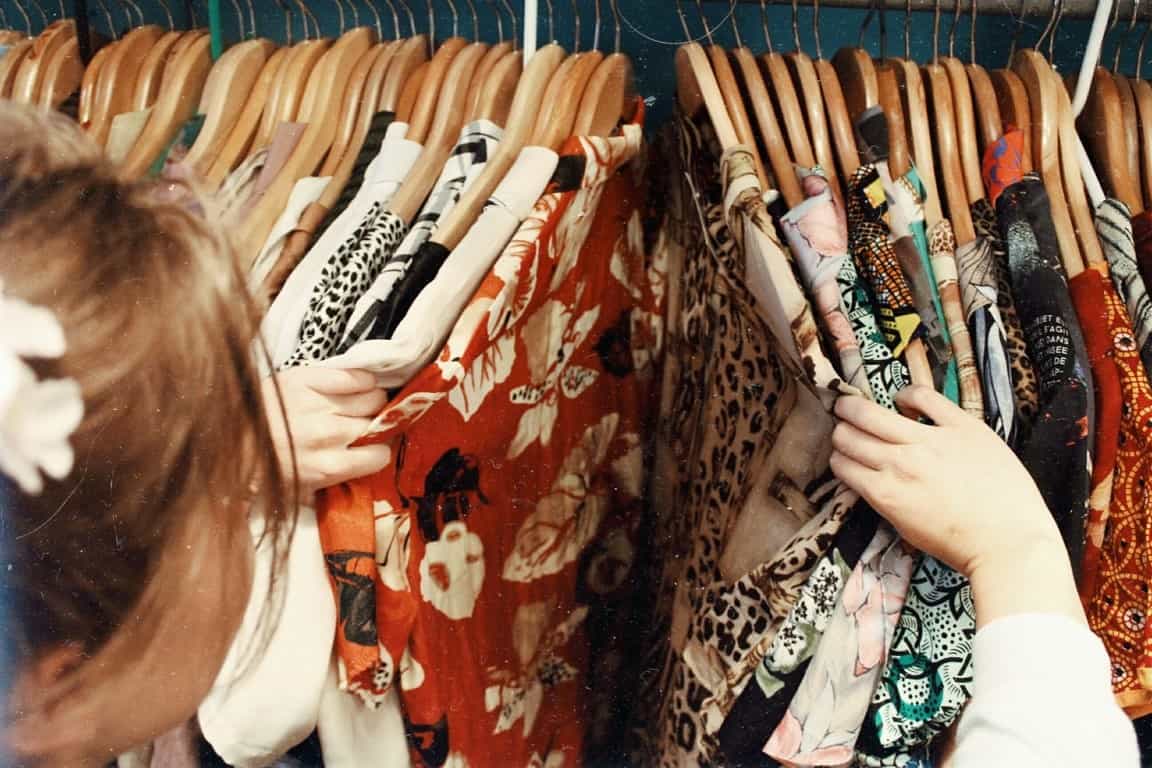
What If No Dress Code Is Given?
On certain occasions, no dress code will be explicitly stated. In that case, you can still follow the rules and guidelines outlined above. There are also other context clues you can use to determine what would be appropriate to wear:
- The schedule of the wedding (is it daytime or evening?)
- The season
- The venue
- The level of formality
If you still cannot figure it out, a knee-length cocktail dress is a safe choice for women. For men, they can opt for a dark suit; depending on the formality of the event proper, they can simply add a tie or remove the coat.
Go Easy on the Makeup and Accessories
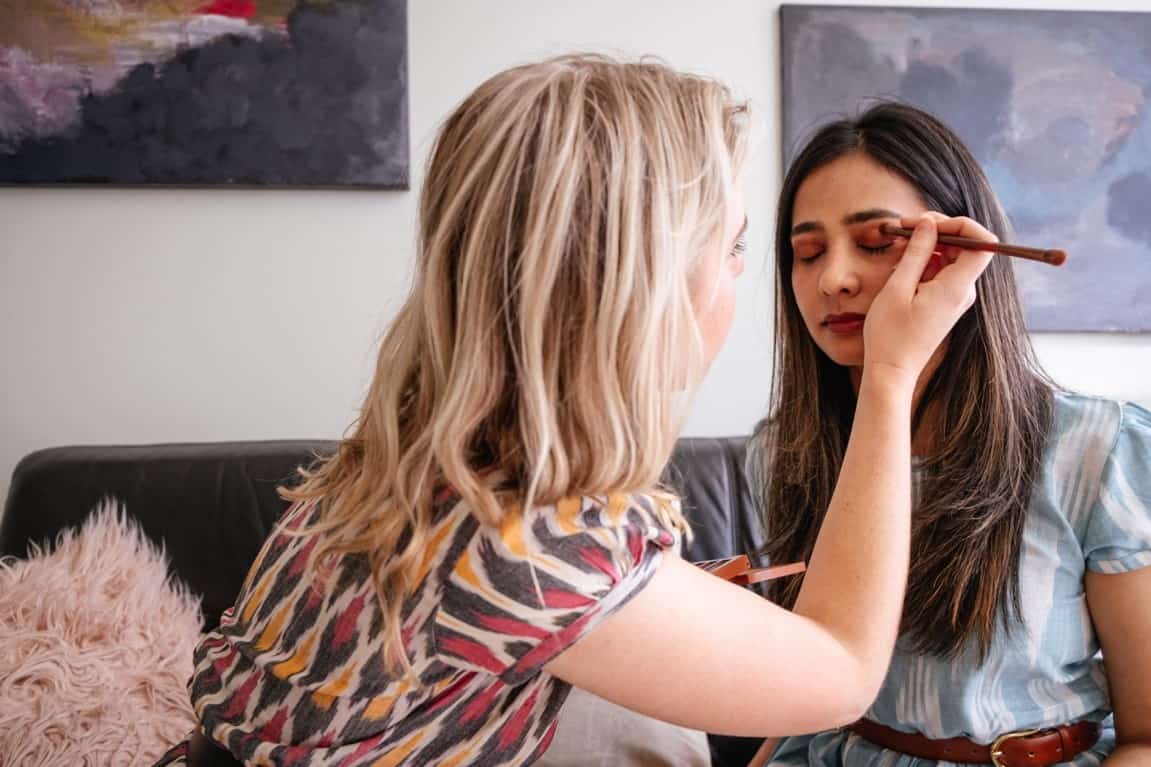
As illustrated above, there is a large amount of emphasis placed on the idea of modesty. This applies not only to clothes but also to makeup and accessories. Wear a few pieces of jewelry and other accessories that will accentuate your outfit. Likewise, do not go full beat or too glamorous with your makeup.
A simple and elegant look has multiple benefits. Firstly, it will not take away the focus and attention on the couple. It can also save you time as you are getting ready. Moreover, it is also practical; too many accessories or makeup that is too heavy may feel cumbersome later on in the day.
Use Neutral Colors
Neutral colors include black, gray, white, navy, beige, tan, and more. One benefit of utilizing neutral colors is that they are easy to coordinate and style into an outfit. They also look well with any season and color scheme. More importantly, they will not make you stand out and inadvertently take the attention away from the bride.
Get Your Clothes Tailored
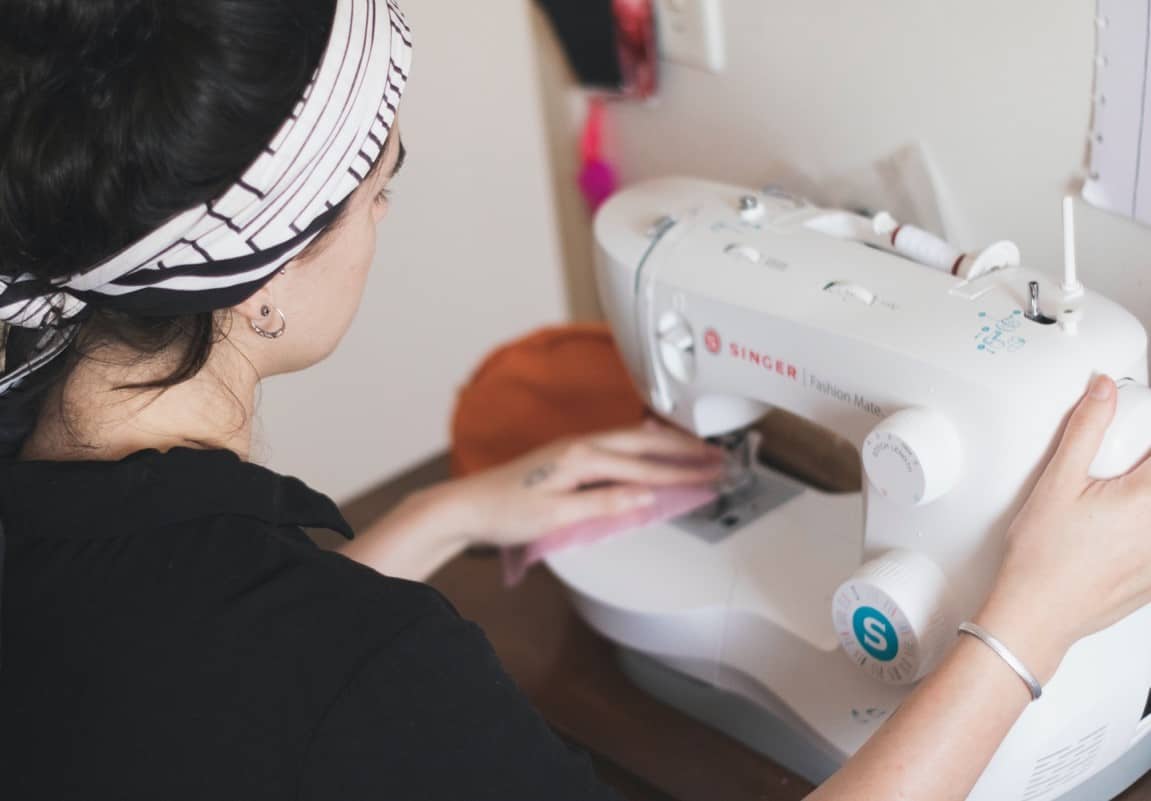
Once you have chosen what clothes to wear at a Catholic wedding, visit a tailor to get your clothes professionally altered. This way, you can accentuate your body. This is a subtle way to still show off your physique without coming off as “immodest.” Corollary to this, wearing well-fitting clothes also provides a boost of confidence.
Feel Good, Look Good
Ultimately, if you feel good and confident in your choice of outfit, then odds are you also look good in it. Think of it as two points in a circle — if you look good, you will feel good; if you feel good, you will look good.
If you think the outfit you have chosen does not suit you, give yourself time to come up with a better outfit. Similarly, if your outfit does not make you feel good, then perhaps it is not the right one for you.
Final Thoughts
So, what to wear to a church wedding? In summary, guests invited to a Catholic wedding are often told to wear clothes that fit under a formal or semi-formal dress code. These dress codes emphasize elegance, sophistication, and modesty. Besides all the do’s and do not’s, it is important that you prioritize your comfort and confidence. Ultimately, you would want to look your best while celebrating love and making new memories.